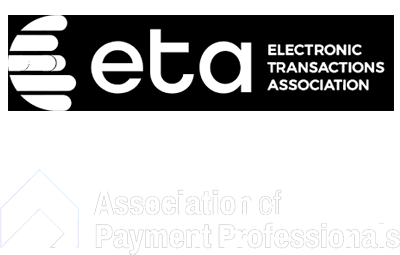14 Oct

The FFL (Federal Firearms License) is a crucial document that allows individuals to engage in the business of buying, selling, and dealing in firearms. While obtaining an FFL license is a significant milestone for aspiring firearms business owners, it is important to understand the high-risk nature of this industry. This article explores the various aspects of holding an FFL license that make it a high-risk endeavor, including the complexities of the license itself, the regulatory challenges faced by license holders, the financial risks involved, the legal implications, strategies for mitigating risks and how to obtain a firearm merchant account.
Understanding the FFL License
Before diving into the risks associated with holding an FFL license, it is essential to grasp the fundamentals of what exactly this license entails.
An FFL license is a federal authorization granted by the Bureau of Alcohol, Tobacco, Firearms and Explosives (ATF) that allows individuals or entities to engage in specific firearms-related activities, such as manufacturing, importing, or dealing firearms.
Obtaining an FFL license requires applicants to undergo a thorough background check and meet specific eligibility criteria, ensuring that only responsible and law-abiding individuals are granted the license.
Types of FFL Licenses
There are several types of FFL licenses, each corresponding to different categories of firearms-related activities. These classifications include:
- FFL Type 01 – Dealer in Firearms
- FFL Type 02 – Pawnbroker
- FFL Type 03 – Collector of Curios and Relics
- FFL Type 06 – Manufacturer of Ammunition for Firearms
- FFL Type 07 – Manufacturer of Firearms
The specific type of license required depends on the nature of the firearms business you intend to operate.
Let’s delve deeper into each type of FFL license:
FFL Type 01 – Dealer in Firearms
A Type 01 FFL license allows individuals or entities to engage in the business of buying and selling firearms. This includes both new and used firearms. Dealers in firearms are required to keep detailed records of all transactions and conduct background checks on potential buyers.
Operating as a dealer in firearms can be a lucrative business, but it also comes with its fair share of challenges. Dealers must stay up-to-date with federal, state, and local laws regarding the sale and transfer of firearms. They must also ensure the security of their inventory to prevent theft and unauthorized access.
FFL Type 02 – Pawnbroker
A Type 02 FFL license allows individuals or entities to engage in the business of pawnbroking, which includes accepting firearms as collateral for loans. Pawnbrokers must comply with all applicable federal, state, and local laws regarding the storage, transfer, and disposal of firearms.
Operating as a pawnbroker requires a keen understanding of the value of firearms and the ability to assess the risk associated with accepting them as collateral. Pawnbrokers must also maintain accurate records of transactions and ensure the proper identification and background checks of individuals pawning or redeeming firearms.
FFL Type 03 – Collector of Curios and Relics
A Type 03 FFL license is specifically for individuals who collect firearms classified as curios and relics. These firearms are typically older or historically significant, and the license allows collectors to acquire, possess, and transport such firearms across state lines.
Collecting curios and relics can be a passion for many enthusiasts, as it allows them to explore the rich history of firearms and preserve pieces of historical significance. However, collectors must adhere to strict regulations regarding the acquisition and transfer of curios and relics, ensuring that they are not used for unlawful purposes.
FFL Type 06 – Manufacturer of Ammunition for Firearms
A Type 06 FFL license allows individuals or entities to engage in the business of manufacturing ammunition for firearms. This includes assembling, reloading, or producing ammunition components.
Operating as a manufacturer of ammunition requires expertise in the production process, adherence to quality control standards, and compliance with safety regulations. Manufacturers must also maintain accurate records of production and distribution, ensuring that their ammunition meets the necessary specifications and is safe for use.
FFL Type 07 – Manufacturer of Firearms
A Type 07 FFL license allows individuals or entities to engage in the business of manufacturing firearms. This includes assembling firearms from parts, manufacturing firearms from raw materials, or modifying existing firearms.
Operating as a manufacturer of firearms requires in-depth knowledge of firearm design, manufacturing techniques, and compliance with strict quality control standards. Manufacturers must also adhere to all applicable federal, state, and local laws regarding the production, transfer, and sale of firearms.
Each type of FFL license comes with its own set of responsibilities, regulations, and opportunities. It is crucial for anyone considering obtaining an FFL license to thoroughly understand the specific requirements and implications of their chosen license type.
The High-Risk Nature of FFL Businesses
Operating an FFL business comes with a multitude of challenges and risks that require careful consideration and planning. In this expanded version, we will explore the factors that contribute to the high-risk nature of FFL businesses in greater detail.
Regulatory Challenges for FFL License Holders
FFL license holders face a complex web of regulations imposed by both federal and state authorities. Compliance with these regulations is not only a legal obligation but also crucial for maintaining the integrity of the business. Let’s delve deeper into some of the regulatory challenges faced by FFL license holders.
One of the most significant challenges is the stringent record-keeping obligations. FFL businesses must maintain accurate and up-to-date records of every firearm transaction, including sales, acquisitions, and transfers. This meticulous record-keeping is essential for ensuring accountability and traceability of firearms.
In addition to record-keeping, FFL license holders must also conduct mandatory background checks for potential customers. This process involves verifying the eligibility of individuals to purchase firearms, ensuring that they do not have a criminal record or any other disqualifying factors. Adhering to these background check requirements is crucial for preventing firearms from falling into the wrong hands.
Furthermore, FFL businesses face restrictions on interstate sales. Each state has its own set of laws and regulations regarding the transfer and sale of firearms. Navigating these complex interstate regulations requires a thorough understanding of the legal landscape and diligent compliance efforts.
Another important aspect of regulatory compliance for FFL license holders is the National Instant Criminal Background Check System (NICS). This system allows FFL businesses to instantly check the eligibility of potential buyers by accessing a comprehensive database of criminal records, mental health records, and other disqualifying factors. Ensuring seamless integration with the NICS and conducting these background checks accurately and efficiently is vital for FFL businesses.
Financial Risks Associated with FFL Businesses
In addition to the regulatory challenges, FFL businesses also face unique financial risks that require careful consideration and proactive risk management strategies.
One of the primary financial risks in the firearms industry is the nature of the products themselves. Firearms are inherently dangerous, and accidents can happen even under the strictest safety protocols. FFL businesses must secure comprehensive insurance coverage to protect against risks such as theft, accidents, and lawsuits alleging negligence. This insurance coverage provides a safety net in case of unforeseen events and helps mitigate the financial impact of potential liabilities.
Moreover, obtaining financing for an FFL business can be challenging due to the perceived high-risk nature of the industry. Lenders may be hesitant to extend credit to firearms-related businesses, which can impact cash flow and hinder growth opportunities. FFL businesses must carefully explore financing options and establish strong relationships with financial institutions that understand the unique challenges and risks associated with the industry. Getting even a simple merchant account can be a challenge unless you use a service like www.PayBlox.com.
In conclusion, operating an FFL business involves navigating a complex regulatory landscape and managing unique financial risks. By understanding these challenges and implementing robust compliance and risk management strategies, FFL license holders can mitigate the inherent risks and ensure the long-term success of their businesses.
Legal Implications of Holding an FFL License
In addition to regulatory and financial challenges, holding an FFL license comes with significant legal implications that can impact the livelihood and reputation of the business owner.
When it comes to the legal landscape surrounding FFL license holders, there are a multitude of federal and state laws that must be navigated. These laws govern the sale, possession, and transfer of firearms, and any violation can result in severe penalties. Fines, imprisonment, and even the revocation of the FFL license are all potential consequences of non-compliance.
Given the complexity of these laws, it is essential for FFL business owners to stay informed about any changes in legislation. Keeping up to date with the latest regulations ensures ongoing compliance and helps mitigate the risk of legal repercussions.
Federal and State Laws Governing FFL Licensees
The laws that govern FFL licensees are a complex web that must be carefully navigated. At the federal level, the Bureau of Alcohol, Tobacco, Firearms, and Explosives (ATF) oversees the enforcement of firearms regulations. FFL license holders must comply with the Gun Control Act of 1968, which sets forth the requirements for obtaining and maintaining an FFL license.
Additionally, FFL license holders must also adhere to state laws, which can vary significantly from one jurisdiction to another. These state laws may impose additional requirements or restrictions on the sale and possession of firearms. It is crucial for FFL business owners to familiarize themselves with the specific laws in their state and ensure compliance at all times.
Legal Consequences of Non-Compliance
Non-compliance with the various regulatory requirements and legal obligations associated with holding an FFL license can have dire consequences. Regulatory agencies, such as the ATF, have the authority to conduct inspections to ensure compliance with federal laws.
If violations are discovered during an inspection, the consequences can be severe. FFL license holders may face penalties, including fines and license suspension. In more serious cases, criminal charges may be filed, leading to potential imprisonment.
Furthermore, the impact of non-compliance extends beyond legal ramifications. It can also damage the reputation of the business. Any negative publicity resulting from violations can erode customer trust and loyalty, potentially leading to a loss of clientele.
Therefore, it is imperative for FFL business owners to prioritize compliance and establish robust internal processes to ensure adherence to all legal requirements. Seeking legal counsel and implementing regular training for employees can help mitigate the risk of non-compliance and protect the business owner’s livelihood and reputation.
Mitigating Risks in FFL Businesses
Despite the inherent risks associated with holding an FFL license, there are strategies that can help mitigate these risks and ensure a safer and more successful business operation.
Best Practices for FFL Compliance
Compliance should be at the forefront of every FFL business owner’s priorities. Implementing robust record-keeping systems, maintaining accurate and up-to-date inventory logs, performing thorough background checks on potential customers, and conducting regular employee training on compliance matters are some essential best practices to adhere to.
Insurance Options for FFL Businesses
Investing in comprehensive insurance coverage tailored to the specific needs of an FFL business is crucial for mitigating financial risks. This includes policies that cover general liability, property and equipment damage, theft or loss, and product liability.
Working with insurance providers experienced in the firearms industry ensures that the unique risks faced by FFL businesses are adequately addressed in the policies.
Conclusion
The decision to hold an FFL license and enter the firearms industry should not be taken lightly. Recognizing and understanding the inherent risks in this business is vital for success. By navigating the complex regulatory landscape, addressing financial risks, adhering to legal obligations, and implementing best practices, FFL businesses can mitigate these risks and position themselves for long-term viability.
Through continuous learning, adaptability, and a commitment to compliance, FFL license holders can pave the way for a thriving and profitable firearms business.






